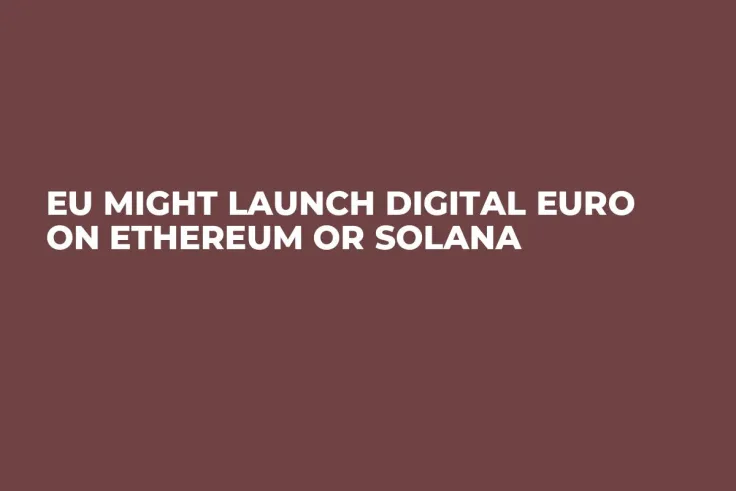
According to a Friday report by the Financial Times, the European Union might launch the much-talked-about digital euro project on Ethereum or Solana instead of opting for a private blockchain.
Issuing a digital euro on a public blockchain could significantly boost its accessibility, but there are some concerns about privacy-related issues.
Jolting EU into action
The world's biggest trading bloc has been rattled by the quick passage of the GENIUS Act, a comprehensive stablecoin legislation, in the US.
The EU is now worried that it might fall behind the US in the stablecoin race, which has prompted its officials to accelerate the development of the digital euro.
The rapid embrace of the stablecoin sector in the US could threaten the dominance of the euro within the EU, according to the officials.
Even though there are some euro-backed stablecoins, their market cap represents only a tiny fraction of dollar-backed ones.
Global stablecoin race
As reported by U.Today, even China, which is known as one of the most anti-crypto jurisdictions, is now reportedly mulling greenlighting yuan-backed stablecoins in a major reversal due to concerns that dollar-backed stablecoins would further boost the hegemony of the greenback.
Japan, the fifth-largest economy, has also recently approved the very first dollar-pegged stablecoin.

 Tomiwabold Olajide
Tomiwabold Olajide Caroline Amosun
Caroline Amosun Godfrey Benjamin
Godfrey Benjamin